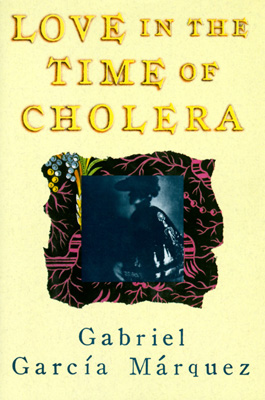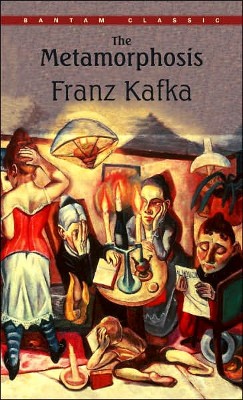Tuesday, September 16, 2008
Triptych: What I Know About How I Read
Rest before you sleep
by Dionisio D. Martinez
Requiem after Fauré, for my father
Rest before you sleep You’ll be walking for hours
then as usual away from home your shoes in your hand
your feet not yet used to the road
Perhaps they need to feel the gravel
to know where they’re headed
A woman I knew who lived mostly in the woods
mentioned the danger in presuming to know
what an animal thinks The fox for example
stopping by her open tent and looking in
I suppose she would’ve felt this way about your feet
She would’ve said how could anyone know
what a pair of tired feet need along the way
I would’ve asked her how she knew the feet
were tired Such discourse produces nothing
but anything less would be silence
and that would be intolerable
I wish I knew why I was telling you this
It’s easier to read the mind of a fox than to guess
what a man’s about to say when he returns
from the woods head full of roots veins
more like branches shoes in one hand feet
blistered and none of this necessarily
an indication of how the feet feel what miles
uphill and back have done to the soles
and to the small bones that propel a man
It’s safe now I think to speak for the fox
who is only as cunning as we say it is
We’re the only creatures that claim to be anything
then build a house of facts around the claim
I’ve come for vindication No point in trying
to disguise it as a lesser wish Wake up stop
while you still know where you are Put away
your elusive country Give your sleep a rest
...
The Saint and the Crab
by William Logan
Along the campo, Manin’s bronze winged lion prowled
among the tanned intruders, licking their hands.
Pools of iridescent shellfish
lay open in the restaurant window,
a shop of otherworldly opals, the mussels’ sheen
the skies of a closed heaven, crabs flat on their backs,
their armor intricate trapped plates and escapements.
The squid slumped in its own ink, the octopus appalled
in its slime. Many and ingenious are the postures of death.
But look! There, in a corner, beneath a willowware plate,
a lone crab clicked its claws, creeping
over a casket of walleyed fish,
through a valley of oysters keeping their counsel,
only to shift warily under the shadow of a wine bottle.
Which saint, O saints, watches over the saintly crab?
The man of forks and spears, the man of arrows?
In the Ca’ d’Oro, the stiffened Sebastian takes
each arrow through his flesh like a skewer.
He wears a little napkin around his middle.
Saint, watch over the fragile boat of the runaway crab.
Let him steal his way back to the green lagoon,
go floating down the Grand Canal on his own motoscafo.
Let him take second life, a later martyrdom.
Let him wave his bent claws in a mockery of farewell,
lest we eat in his hollow shell his captive meat.
William Logan, Poetry, "The Saint and the Crab," The New Yorker, October 16, 2000, p. 205
...
The Blue
by David Baker
heron is gray, not blue, but great enough
against brown-tipped bowed cattails to be
well-named, is known for its stealth, shier
than a cloud, but won't fly or float away
when it's scared, stands there thinking maybe
it's invisible though it's not—tall, gray,
straight as a pole among the cloudy reeds.
Then it picks up one stem leg. This takes time.
And sets it down just beyond the other,
no splash, breath of a ripple, goes on
slowly across the silt, mud, algae-
throttled surface, through sedge grass,
to stand to its knees in water turning
grayer now that afternoon is evening.
Now that afternoon is evening
the gray heron turns blue, bluer than sky,
bluer than the mercury blue-black still pond.
So when did it snag the bullfrog
hanging, kicking, in its scissor beak?
To look so long means to miss the sudden.
It strides around like a sleek cat
from pond to bank and back, blue tall bird,
washing the frog, banging it against stones,
pecking almost as if it doesn't know
what to do now that it's caught such a thing.
How fast its beak must be to shoot out
like an arrow or that certain—as it's called—
slant of light. Blue light. Where did it go?
by Dionisio D. Martinez
Requiem after Fauré, for my father
Rest before you sleep You’ll be walking for hours
then as usual away from home your shoes in your hand
your feet not yet used to the road
Perhaps they need to feel the gravel
to know where they’re headed
A woman I knew who lived mostly in the woods
mentioned the danger in presuming to know
what an animal thinks The fox for example
stopping by her open tent and looking in
I suppose she would’ve felt this way about your feet
She would’ve said how could anyone know
what a pair of tired feet need along the way
I would’ve asked her how she knew the feet
were tired Such discourse produces nothing
but anything less would be silence
and that would be intolerable
I wish I knew why I was telling you this
It’s easier to read the mind of a fox than to guess
what a man’s about to say when he returns
from the woods head full of roots veins
more like branches shoes in one hand feet
blistered and none of this necessarily
an indication of how the feet feel what miles
uphill and back have done to the soles
and to the small bones that propel a man
It’s safe now I think to speak for the fox
who is only as cunning as we say it is
We’re the only creatures that claim to be anything
then build a house of facts around the claim
I’ve come for vindication No point in trying
to disguise it as a lesser wish Wake up stop
while you still know where you are Put away
your elusive country Give your sleep a rest
...
The Saint and the Crab
by William Logan
Along the campo, Manin’s bronze winged lion prowled
among the tanned intruders, licking their hands.
Pools of iridescent shellfish
lay open in the restaurant window,
a shop of otherworldly opals, the mussels’ sheen
the skies of a closed heaven, crabs flat on their backs,
their armor intricate trapped plates and escapements.
The squid slumped in its own ink, the octopus appalled
in its slime. Many and ingenious are the postures of death.
But look! There, in a corner, beneath a willowware plate,
a lone crab clicked its claws, creeping
over a casket of walleyed fish,
through a valley of oysters keeping their counsel,
only to shift warily under the shadow of a wine bottle.
Which saint, O saints, watches over the saintly crab?
The man of forks and spears, the man of arrows?
In the Ca’ d’Oro, the stiffened Sebastian takes
each arrow through his flesh like a skewer.
He wears a little napkin around his middle.
Saint, watch over the fragile boat of the runaway crab.
Let him steal his way back to the green lagoon,
go floating down the Grand Canal on his own motoscafo.
Let him take second life, a later martyrdom.
Let him wave his bent claws in a mockery of farewell,
lest we eat in his hollow shell his captive meat.
William Logan, Poetry, "The Saint and the Crab," The New Yorker, October 16, 2000, p. 205
...
The Blue
by David Baker
heron is gray, not blue, but great enough
against brown-tipped bowed cattails to be
well-named, is known for its stealth, shier
than a cloud, but won't fly or float away
when it's scared, stands there thinking maybe
it's invisible though it's not—tall, gray,
straight as a pole among the cloudy reeds.
Then it picks up one stem leg. This takes time.
And sets it down just beyond the other,
no splash, breath of a ripple, goes on
slowly across the silt, mud, algae-
throttled surface, through sedge grass,
to stand to its knees in water turning
grayer now that afternoon is evening.
Now that afternoon is evening
the gray heron turns blue, bluer than sky,
bluer than the mercury blue-black still pond.
So when did it snag the bullfrog
hanging, kicking, in its scissor beak?
To look so long means to miss the sudden.
It strides around like a sleek cat
from pond to bank and back, blue tall bird,
washing the frog, banging it against stones,
pecking almost as if it doesn't know
what to do now that it's caught such a thing.
How fast its beak must be to shoot out
like an arrow or that certain—as it's called—
slant of light. Blue light. Where did it go?
Subscribe to:
Post Comments (Atom)





6 comments:
Exercise 90.
I was walking with my mother and brother along the Greenway here, and searching for the bur oak's acorns in the leaves. They are large and remarkably wooly.
https://plants.ces.ncsu.edu/plants/quercus-macrocarpa/
My instructor from dendrology proceeded on her evening run through this scene.
In my general disregard for Keith's counterpart, and her post partum depression, I emphasized that Madeline has to be picked up in the afternoon. She is a slime mold in her mother's house, and will be delayed and destroyed at school.
Exercise 90. Thank you for reminding me. To be followed by Exercise 91.
https://1drv.ms/i/s!AsA4BY25Ql_1mx1h6W8Y91QaAAL7
https://youtu.be/ZSaVPGqpO_o?si=uP6svMK4lbLz9PHc
https://wp.towson.edu/glenarboretum/home/bur-oak/
The bur oak is my favorite, still.
https://youtu.be/S8jrRDEcR7c?si=cuUpf-GWZ_2DdNoh
"The number seven, as noted in the previous chapter, symbolizes the complete purpose of human existence, combining the spiritual level of the Sabbath with the physical effort of the week (112)."
https://books.google.com/books?id=2jdXCGxQOysC&printsec=frontcover&dq=The+Wisdom+of+the+Hebrew+Alphabet&hl=en&newbks=1&newbks_redir=0&source=gb_mobile_search&sa=X&ved=2ahUKEwiFkfmV9tqFAxW0FFkFHesNBKAQ6AF6BAgMEAM#v=onepage&q=The%20Wisdom%20of%20the%20Hebrew%20Alphabet&f=false
From the author of Pump: A Natural History of the Heart (2021):
https://www.google.com/books/edition/Bite/AmDnEAAAQBAJ?hl=en&gbpv=1&pg=PA1&printsec=frontcover
Post a Comment